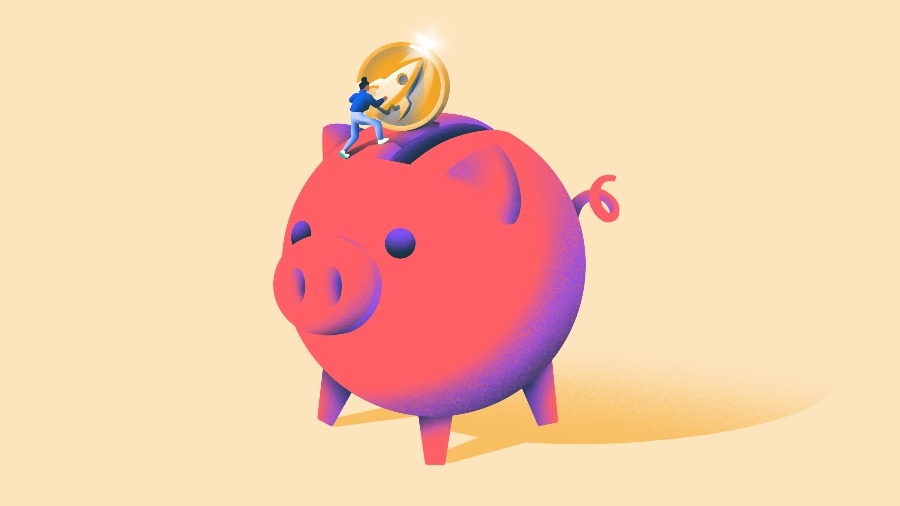Summary:
Entrepreneurship is a lifeline for many women managing mental health challenges.
These women share how flexibility and autonomy in entrepreneurship support their well-being.
Catalina Parker states, 'Entrepreneurship saved me' after leaving her 'dream job' to start her own business.
Olivia Hipkins finds freedom in entrepreneurship to reclaim her sense of self-worth.
Vanessa Farino believes entrepreneurship is a vehicle for personal healing and self-discovery.
In my five-part series on mental health and entrepreneurship, I’m sharing the personal stories of women managing diagnoses like anxiety, depression, ADHD, and PTSD while building their businesses. Over the next few weeks, I’ll explore how the demands of entrepreneurship can intensify mental health struggles, why many of us are drawn to this path despite (or because of) those experiences, and the strategies used to maintain well-being and achieve success.
For many, entrepreneurship is more than just a career path: it’s a lifeline. As someone who spent over a decade battling perfectionism-fueled eating disorders, depression, and anxiety, I’ve seen firsthand how mental health struggles can shape our professional choices. Those challenges ultimately led me to pursue a master’s degree in psychology and a career as a therapist and executive coach. But they also gave me an understanding of why so many people are drawn to paths that allow us to craft environments and schedules that support our well-being.
Entrepreneurship offers that opportunity: Research suggests that individuals with mental health challenges are uniquely drawn to entrepreneurship because it allows them to design work in ways that accommodate their needs. That flexibility and autonomy, plus the chance to align work with strengths and passions, provide a sense of agency and freedom that’s hard to find in conventional jobs.
But this isn’t just theoretical—it’s a lived reality for countless individuals who’ve used entrepreneurship to reclaim their mental health and lives. Take it from these six women, who shared their journeys to entrepreneurship and how building their own businesses became a key component of taking care of their mental health.
‘Entrepreneurship Saved Me’

Catalina Parker was diagnosed with depression and anxiety in 2021, a time she considers one of the most challenging of her life. Therapy and medication provided some relief, but the real turning point came when she realized she couldn’t keep living the way she had been.
“I left what I once considered my ‘dream job,’ we sold our home, and I took a leap of faith to start my own business. It was both terrifying and liberating, but ultimately, it set me on a path to a more fulfilling and balanced life,” she says. “Entrepreneurship saved me.”
Now, as co-founder of Relatable Nonprofit, which helps people launch and grow nonprofit consulting businesses, Parker no longer struggles with depression and manages anxiety through breathing techniques and prioritizing her needs. She also uses her journey to support others. “My mental health challenges have given me empathy for the clients we serve, whether they’re feeling burnt out or just looking to redefine how nonprofit work fits into their lives,” she says. “I know what it's like to feel overwhelmed and in need of change.”
‘Entrepreneurship Gave Me The Freedom To Reclaim Myself’

As Managing Partner at Odyssey Capital Ventures, Olivia Hipkins supports early-stage ventures in the real asset industries. As someone who deals with severe depression and social anxiety, this entrepreneurial path offered her the freedom to reclaim her sense of self.
“In the depths of my depression, the apathy and lack of self-worth can be crippling,” she explains. “Entrepreneurship has given me the freedom to derive my self-worth from my own actions—not simply from the compensation offered by a company for doing the tasks they assigned.”
Running her own business has also allowed Hipkins to prioritize her mental health day to day. “I came to realize that my mental health is not something to be swept under the rug and ignored. Starting and running my own business lets me take care of myself and work on the schedule that works best for me, particularly during difficult times,” she explains.
‘I Rebuilt Myself Through Entrepreneurship’

Vanessa Farino is the founder of Creative CEO, a platform that supports women of color and first-generation entrepreneurs in building purpose-driven businesses. But to her, this isn’t just a venture—it’s a vehicle for healing and self-discovery.
“They say entrepreneurship is the biggest vehicle for personal healing, and I’ve found that to be profoundly true,” says Farino, who has struggled with depression and anxiety. “Stepping into this space allowed me to confront my own limitations, redefine success on my terms, and build something deeply aligned with my values.”
A core tenet of Farino’s philosophy is that when women control their wealth, they control their future—which entrepreneurship allowed her to reclaim. “It’s not just about financial freedom; it’s about creating a life where I can prioritize authenticity, mental health, and a human-centered approach to business while helping others do the same,” she says.
‘I’ve Found Fulfillment And Joy’

Grace Nguyen has struggled with anxiety since her youth, which is part of the reason she’s always been drawn to entrepreneurship.
“Working in corporations, I always showed up as if it were my own company, but the end result always had me asking myself, ‘What is it all for?’ I felt I wasn't impacting the world in the way I wanted to, and it negatively impacted my mental health since the sense of my value is heavily influenced by the impact of my work,” she explains.
Now, she’s used her work as founder and CEO of inclusive jewelry brand LOUPN as a way to transform her relationship with anxiety. “Becoming an entrepreneur has allowed me to explore ways I want to give to the world and brighten the communities around me. It’s helped me feel much more fulfilled and joyful.”
‘Entrepreneurship Gave Me The Power To Decide My Own Future’

Caroline Crawford, who has struggled with anxiety throughout her life, turned to entrepreneurship to take back control of her career and mental health.
“I spent so much of my career in-house at companies being stressed, working hard only to have the fate of my career in someone else’s hands,” she shares. “That dynamic forced me to give someone else the power over my life—and that alone caused so much stress and anxiety.”
Starting her own business, mission-driven marketing studio Cultiveight Communications, became a way to reclaim that power. “While entrepreneurship is stressful, I get to decide for myself how far I want to go and whether this will make me happy in my day-to-day life,” she explains.
‘I Needed The Freedom To Do Things My Own Way’

Ariana Rodriguez, who has dealt with ADHD, anxiety, and premenstrual dysphoric disorder (PMDD), built her business to address not only her own challenges but also those of others. Her company, corxly, is a project management platform designed to simplify task management for neurodivergent entrepreneurs using voice-to-task technology.
“Traditional corporate environments often felt limiting, especially with ADHD, as I needed the freedom to approach problems in my own way,” she says. “Starting corxly allowed me to build a business model that not only accommodates my own cognitive needs but also provides tools to support others facing similar challenges.”
Entrepreneurship isn’t a one-size-fits-all solution, but for those who feel constrained by traditional employment, it offers a way to reclaim agency, align work with personal values, and make mental health a priority. However, the entrepreneurial journey isn’t without its roadblocks. Navigating uncertainty, managing burnout, and sustaining balance require immense resilience. In the next installments of this series, I’ll explore the unique mental health challenges facing entrepreneurs and share strategies and resources to ensure that their businesses—and their well-being—thrive.






Comments